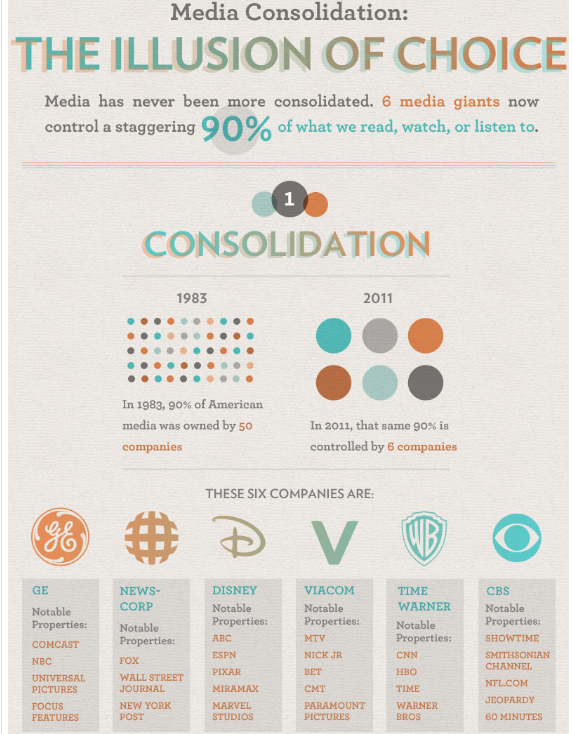
“Is RT speaking to people in the United States the way that other media are not? Without question, the answer is yes.”
State Department is concerned about the message of RT and other non U.S. media beginning to break through and pointed out that only a short time ago, then Secretary of State Hillary Clinton called for the United States to create “its own government propaganda channel to compete with RT, China’s CCTV TV and Press TV from Iran.”
Asked about the claim that only 6 companies in the United States control nearly all media, Swann pointed out that some of those companies have changed ownership since 2011 when that claim was first popularized but that the number of media companies in control hasn’t really changed. He also pointed out that even local television in the United States is controlled by a handful of companies.
“Local media, local TV stations are owned by a variety of different owner but even then you have this enormous concentration of power where one company might own TV stations in 50 or 60 TV markets and provide content for all of those TV markets. So, at the end of the day you have a lot of information being concentrated in very few hands.” says Swann.

“The Cable News audience in America, national news audience is shrinking. Old media is dying in this country and new media is rising.”
Nevertheless, RT has come under fire from not only the state department but from other media in the United States. Especially after RT America anchor Liz Wahl quit live on air. Swann says that evidence of the false left/right paradigm in media can be seen when all media find a common enemy.
“We have a left/right paradigm in this country where media pretends to be at odds with each other over the left wing and the right wing. But in reality when both of those wings begin attacking one particular entity, in this case RT, then you know that paradigm is starting to break down.”
“We have a left/right paradigm in this country where media pretends to be at odds with each other over the left wing and the right wing. But in reality when both of those wings begin attacking one particular entity, in this case RT, then you know that paradigm is starting to break down.”
Swann goes on to point out that because national media is controlled by so few executives, it has become increasingly controlled by the crony system. That, he says, is the greatest danger to journalism.
“Those executives are becoming so entwined in a crony system with politicians, that it really has become a form of propoganda. Where on the local level and in the newsroom level, journalists don’t really have a say. They are not allowed to talk about certain issues in this country. We are not allowed to show certain pictures. I just had a conversation with someone today, I asked them, ‘When was the last time in the United States that we saw a picture on national or local television of the aftermath of a U.S. drone strike?’ And they couldn’t tell me. The reason for that is because we don’t show those pictures here. American media refuses to show those images.”
“Those executives are becoming so entwined in a crony system with politicians, that it really has become a form of propoganda. Where on the local level and in the newsroom level, journalists don’t really have a say. They are not allowed to talk about certain issues in this country. We are not allowed to show certain pictures. I just had a conversation with someone today, I asked them, ‘When was the last time in the United States that we saw a picture on national or local television of the aftermath of a U.S. drone strike?’ And they couldn’t tell me. The reason for that is because we don’t show those pictures here. American media refuses to show those images.”


No comments:
Post a Comment